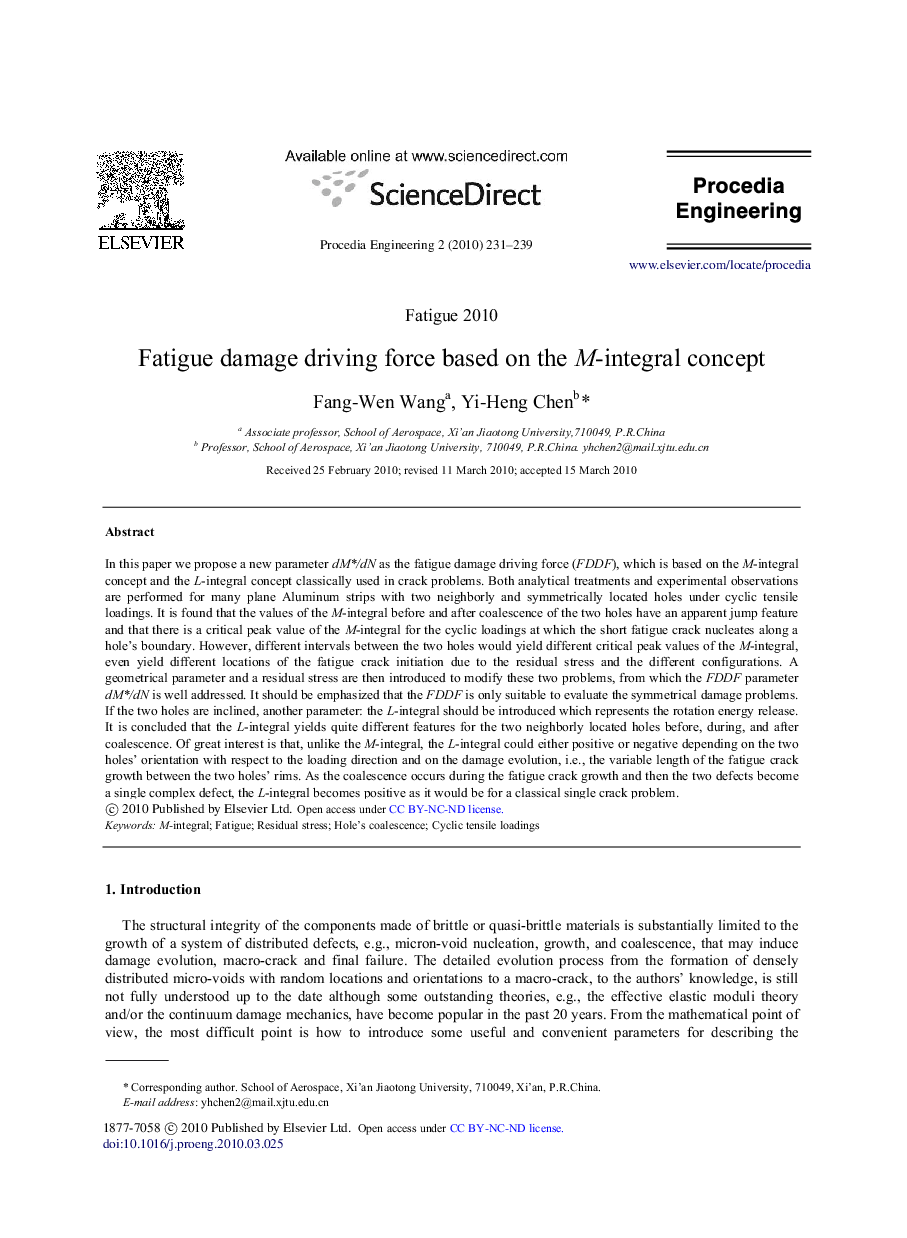| Article ID | Journal | Published Year | Pages | File Type |
|---|---|---|---|---|
| 864612 | Procedia Engineering | 2010 | 9 Pages |
In this paper we propose a new parameter dM∗/dN as the fatigue damage driving force (FDDF), which is based on the M-integral concept and the L-integral concept classically used in crack problems. Both analytical treatments and experimental observations are performed for many plane Aluminum strips with two neighborly and symmetrically located holes under cyclic tensile loadings. It is found that the values of the M-integral before and after coalescence of the two holes have an apparent jump feature and that there is a critical peak value of the M-integral for the cyclic loadings at which the short fatigue crack nucleates along a hole’s boundary. However, different intervals between the two holes would yield different critical peak values of the M-integral, even yield different locations of the fatigue crack initiation due to the residual stress and the different configurations. A geometrical parameter and a residual stress are then introduced to modify these two problems, from which the FDDF parameter dM∗/dN is well addressed. It should be emphasized that the FDDF is only suitable to evaluate the symmetrical damage problems. If the two holes are inclined, another parameter: the L-integral should be introduced which represents the rotation energy release. It is concluded that the L-integral yields quite different features for the two neighborly located holes before, during, and after coalescence. Of great interest is that, unlike the M-integral, the L-integral could either positive or negative depending on the two holes’ orientation with respect to the loading direction and on the damage evolution, i.e., the variable length of the fatigue crack growth between the two holes’ rims. As the coalescence occurs during the fatigue crack growth and then the two defects become a single complex defect, the L-integral becomes positive as it would be for a classical single crack problem.
